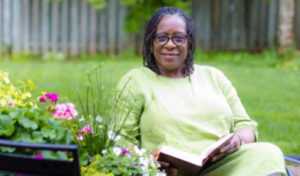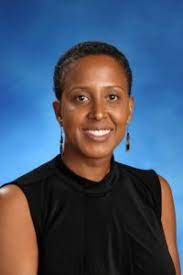By Lincoln DePradine

Margaret Lazarus and Eleanor McIntosh, two senior Ontario educators, say an imperative of leaders in the education sector is to eliminate anti-Black racism from school and create an environment for success for students of African ancestry.
“We have to actively address and dismantle anti-Black racism,’’ said Lazarus, superintendent of education at the Durham District School Board (DDSB). “Everyone has a right to learn in an environment that is safe, welcoming and free from discrimination of any type.’’
Lazarus and McIntosh, a DDSB high school principal, recently addressed an online forum titled, “Navigating the Education System’’.
It was part four of a five-part session in the Town of Ajax’s “Diversity XChange’’ speaker series presented by the Ajax Anti-Black Racism Task Force.
“We see the evidence and the data and the achievement outcomes that are quite low for Black students, across Kindergarten to Grade 12 classrooms,’’ said McIntosh, a founding-member of both the Durham Black Educators’ Network (DBEN) and the Ontario Alliance of Black School Educators.
“We are looking for, and requiring, the system to change; not the student to change. The system needs to make new spaces. We, as the system, need to provide spaces – programming and shifts – that would allow our Black students to thrive.’’

Centuries-long negative stereotyping of Black people now is practised through white supremacy and is manifested in institutional and systemic discrimination in schools and in society, said McIntosh and Lazarus.
There’s “well documented’’ evidence that Black students “experience actions that are harmful or violent’’ to them, such as “extreme disciplinary measures’’ and “high rates of suspension’’, said McIntosh.
Many students also are victims of micro-aggression, which are “ongoing, regular comments that are made, that damage the self-worth and self-confidence of students’’, she said. “The impact to the students is great from these micro-aggressions.’’
Lazarus agreed to the existence of “structures and practices that continue to disadvantage Black youth’’.
“Our schools have become a pipeline to prison,’’ she charged. “We need to interrupt these things so that everyone has an equal and fair chance to be successful in education.’’
Education, said Lazarus, is a human right. “Eliminating and dismantling anti-Black racism, it’s a must; it’s an imperative.’’
Lazarus and McIntosh both urged parents to find ways to engage schools and education officials on behalf of their children.
“Get involved in the school and get involved in your child’s education,’’ Lazarus appealed. “Make sure that you’re keeping in communication with the teacher. Know your teachers. Keep in contact with them.’’
If responses are not forthcoming from teachers, contact should be made with principals and superintendents, said Lazarus.
“The most important thing that you can do is get involved,’’ she emphasized.
Parental involvement and student support should be throughout a child’s school life, McIntosh said. Such action is “really important and valuable’’ to children’s school success, she argued.
Despite challenges, Lazarus and McIntosh pointed DDSB achievements in education service to Black students and in its staffing hiring practices.
“DDSB has taken some very bold steps over the last few years in developing policy that would help support frontline work in schools,’’ she said.
McIntosh explained that some programs to help students have been embarked on by DDSB with support from community organizations such DBEN.
The school board’s latest program, for students from Grades 1 to 8, will be launched at month-end.
It’s an Afrocentric Heritage program that will be held every Saturday, 10 am – 1 pm, at Viola Desmond Public School, McIntosh announced.
Desmond, a businesswoman and Black Canadian civil rights activist, died in 1964. She was 50. Her image is on the Canadian $10 bill.


